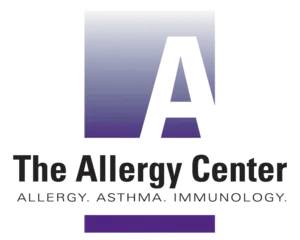Types of Allergy Symptoms and Treatments
posted: Jan. 30, 2020.
Does springtime leave you sneezing, coughing and peering at the world through watery eyes? Does your tongue seem to swell up when eating certain foods? If you said yes then you very well could be dealing with allergies, and you aren’t alone. Millions of Americans deal with allergies. If you suspect that you could be dealing with allergies, an allergist can help diagnose and treat your symptoms.
Types of Allergies and Their Symptoms
While people can develop allergies to just about anything the most common allergies include:
Food- If you are allergic to a certain food you may notice swelling or tingling in the mouth or lips, as well as hives. Common food allergies include shellfish, tree nuts, cow’s milk, eggs, soy and wheat.
Pollen- Sometimes referred to as “hay fever” or allergic rhinitis, pollen allergies usually cause those classic seasonal allergy symptoms such as watery eyes, runny nose and sneezing.
Pets- If you suddenly experience an itchy throat, nasal congestion, water eyes or a runny nose after playing with the family cat or dog you could very possibly have a pet allergy.
Mold- A mold allergy causes a lot of the same symptoms that pollen does including sneezing, postnasal drip, stuffy nose and itchy, watery eyes.
Latex- When exposed to latex you may develop wheezing, hives, chest tightness, trouble breathing or a runny nose.
Insect stings and bites- This allergy can have potentially dangerous side effects depending on the severity of the allergy. Common symptoms include swelling of the affected area, widespread hives, chest tightness, wheezing and anaphylaxis.
Drug- A drug allergy can cause serious symptoms such as facial swelling, wheezing and chest tightness, hives and rash. It’s important that you seek immediate medical attention if you experience these symptoms after taking any kind of drug.
There are certain types of allergies that are more likely to cause a severe and possibly life-threatening allergic reaction known as anaphylaxis. It’s important to call 911 if you experience these symptoms of anaphylaxis:
- Difficulty breathing
- Weak pulse
- Rapid heartbeat
- Dizziness
- Sudden drop in blood pressure
- Loss of consciousness
Treating Allergies
An allergist will perform a simple skin prick or blood test to determine the type of allergies you have. Once we have figured out what is causing your symptoms then we can create a treatment plan that will help you manage your symptoms. While some people may outgrow their allergies others will need to follow a treatment plan for the rest of their lives.
Some ways to treat allergies include:
- Lifestyle modifications (e.g. avoiding triggers; allergy-proofing your home)
- Medications
- Immunotherapy (aka: allergy shots)
- EpiPen (emergency epinephrine used to treat severe allergic reactions)
If allergy symptoms have you feeling crummy for several months out of the year then it’s time to talk with an allergy specialist who can help you get your symptoms under control.

